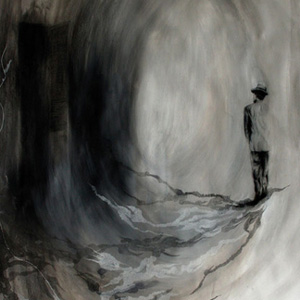
Work Pray Code (Princeton University Press) by Carolyn Chen
“What happens to us, and what happens to religion, when people worship work?” This is the question that occupies sociologist Carolyn Chen in Work Pray Code, her new book based on in-depth research on Silicon Valley’s tech industry. Her answer reveals the book’s title (with its suggestion of bounded activities) to be a slight misnomer. For, as Chen discovers, work is not only “replacing religion” (increasingly omnipresent in employees’ lives, and the object of faith and devotion); it is infused with spiritual and religious practices geared, ultimately, towards maximum productivity. This is a world where work is not so much distinct from prayer as blurred with it.
Chen suggests that Silicon Valley – ostensibly one of America’s “least religious” places – is not so “godless” after all. The tech workplace is “conscripting” religion; borrowing (typically, but not exclusively) from Asian spiritual and religious traditions, such as yoga and meditation, to help employees to become “whole” and connect to their “authentic selves”. But the nurturing care and cultivation of employees’ spiritual lives are not altruistic. Rather, they rest upon the logic that the “self-alienated” worker operates at sub-optimal capacity. They are also vulnerable to burnout, which is blamed not on overwork, but “insufficient self-care”. No wonder, then, that employees might seek “optimisation” through practices including meditation, journaling and even fasting. Chen quotes one CEO who asks his staff to anonymously rate, weekly, aspects of their lives including spirituality. “Everyone knows”, he explains, “that if you’re not taking care of yourself, you’re not playing for the team.”
Chen describes the “meditation entrepreneurs” – including mindfulness teachers, HR executives and the coaches allocated to high-potential staff – who share the challenge of selling “a religious product in a professedly secular workplace”. In doing so, they renounce a “sacred, separate, Asian, otherworldly, and ethical religious Buddhism”, and replace it with one that is “universalised, Whitened, scientised, profitable, and efficient”. Meditation thus becomes a snackable “skill” used to aid creativity, flow and focus (alongside empathy, with a view to enabling more “user friendly” design). Indeed, the practices Chen describes seem so far from actual Buddhism that one wonders whether they can be analysed in terms of “religion” at all. Chen explains: “tech meditators” aren’t “religious”, but use “religious traditions – their practices, rituals, and teachings – as tools or technologies to optimise their work performance”, directed towards the “religion of work”.
Though wonderfully rich in detail, Work Pray Code is frustrated by its failure to provide, early on, a firm working definition of “religion”. This is clarified in an appendix, where Chen suggests that religion “in a secular age” can be studied not only through “religious things”, but those things that are also “sacred” to us and command worship (e.g. work, worshipped through yoga). Still, it leads one to wonder where “spirituality” ends and “religion” – and, indeed, cultishness – begins. Some readers may find Chen’s conclusion conservative: though critical of the extent to which work is worshipped, Chen does not challenge work itself; likewise, she criticises “religions” for not confronting work worship, but leaves religion per se untouched. She suggests, “Religious traditions can offer a powerful and distinct set of ethics, communities, and rituals to counter the morally bereft religion of work.”
Still, Chen’s critique of Silicon Valley’s “Techtopia” and its impact on the wider social fabric is powerful. She describes how participatory democracy – indeed, the common good – suffers when we worship work and disengage from civic life; how public goods become private “perks” when the tech industry dominates; how so-called “wholeness” and “the basic stuff of a good life” has become the “privilege” of the highly skilled, while others lack even basic security. Silicon Valley is, she suggests, a bellwether. One need not agree with Chen’s framework of “religion” to see that we must pay attention.
This piece is from the New Humanist autumn 2022 edition. Subscribe here.

